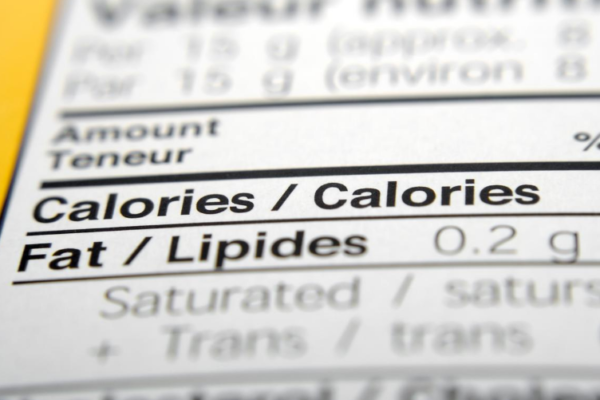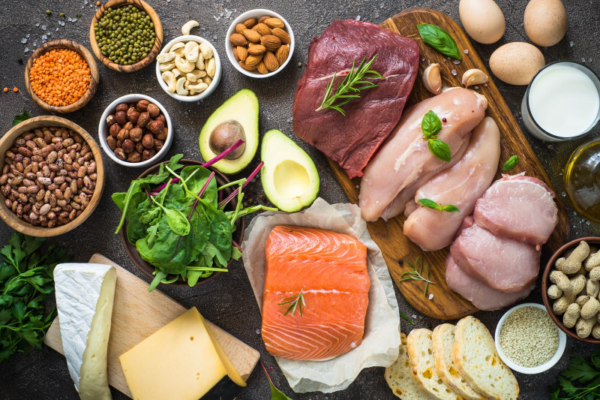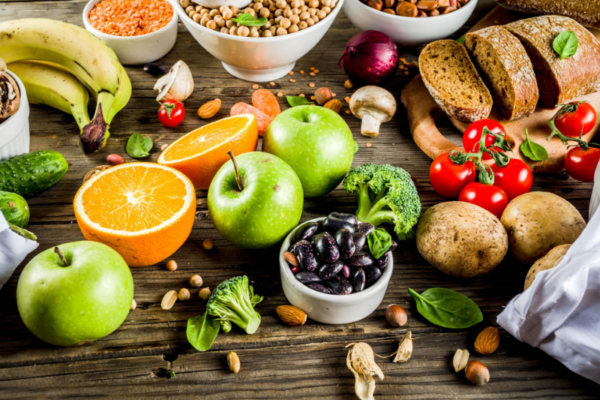Calorie Counting: What You Need to Know
by Kim – Friday, 7. August 2020
All about the Calorie
A couple of weeks ago we looked at the topic of fat burn and the four most important things for maintaining a healthy weight: exercise, sleep, stress, and of course, diet.
When discussing diet in this context, it’s almost impossible to avoid bringing up the topic of calories. While calories can be useful to keep in mind when you are trying to manage your weight, it’s also important to know that calorie counting has its limitations.
Although we touched on this briefly in our other blog post, we wanted to elaborate more on the topic.

So What is a Calorie?
First of all, we should clarify what a calorie actually is. A calorie is just a unit of energy. Calories are used to show how much energy an item of food contains. This energy can be released (as kinetic energy) when metabolized and used as fuel for your body.
The Calorie Equation
We’re all familiar with the idea that the energy our body uses each day should match the amount of energy we consume in food. If the balance of calories-in and calories-out is off, we will either lose or gain weight.
In the most simplistic sense, this idea holds true. However, there is a little bit more to it than most people realize. How we measure calories is fairly inaccurate, what our body does with calories varies from person to person, and the source of the calories we eat also affects our biology very differently.

Not All Calories Are Created Equally
The biggest misconception people have when it comes to calories is that they are all the same. The truth is that 100 calories of candy and 100 calories of broccoli will have a dramatically different effect on your body – even though they technically both have the same amount of energy.
This is because the types of foods you eat can have a huge impact on the biological processes (for example, hormones) that control when what and how much you should eat. Different foods also go through different biochemical pathways and so the way their energy is released and stored in the body varies.

This does not mean we cannot use the equation at all – it just means we have to keep a few additional things in mind when we choose what to eat and where our calories come from.
Some Helpful FACTS About the Calorie:
- We don’t absorb all of the calories we consume. How many calories we absorb varies across food types and also according to how we prepare the food (for example, we absorb more calories from cooked foods than raw foods).
- We all absorb calories uniquely based on our individual gut bacteria.
- Cooking, blending, or chopping food generally makes more calories available for absorption than may appear on a nutrition label.
- Even though fructose and glucose (different types of sugars) provide the same number of calories, fructose has far more negative effects on hormones, appetite and metabolic health.
- Protein calories are less fattening than calories from carbs and fat, because protein takes more energy to metabolize. Whole foods also require more energy to digest than processed foods.
- Increased protein can lead to drastically reduced appetite and cause automatic weight loss without the need for calorie counting or portion control.
- Low-carb diets consistently lead to more weight loss than low-fat diets, even when calories are matched between groups.
- Studies show that refined carbohydrates lead to faster and bigger spikes in blood sugar, which leads to cravings and increased food intake.
What’s the Difference Between Calories and Carbs?
The primary difference between carbohydrates and calories is that calories are simply a unit of energy contained within all types of foods you eat. Carbs, like proteins and fats, are organic compounds. We can measure the energy these compounds contain in calories.
Carbs come in different forms. There are simple carbs and complex carbs. If you eat foods like white bread, for example, then the carbs in these are going to be faster to break down meaning they don’t provide long-lasting energy (simple carbs). Complex carbs, like vegetables or whole grains, are slower to metabolize and thus provide more sustained energy. A common misconception is that all carbs are bad – this isn’t the case. Fruits and vegetables are carbs too 😉

So Why Do We Still Calculate Calories in Veloburn?
In Veloburn, calories are estimated using a formula that of RESISTANCE, SPEED, and BODY WEIGHT. Bodyweight is taken into consideration because a bigger person will burn more calories than a smaller person, and the leaderboard knows this. This is also why the calories you see on the leaderboard may differ from what’s on the computer on the bike.
Veloburn all about improving your performance and achieving your own personal best. By tracking statistics, like the calorie, you allow yourself to set benchmarks for yourself and measure your progress over time with numbers. Not only is this helpful for tracking your performance on the bike, but for those looking to cut down on fat, it can still be helpful (and motivating) to estimate your energy burn.
An important point to remember, however, is that calorie consumption during a Veloburn class can never be determined in a generalized way. There are many additional factors such as age, training condition, training intensity, etc., that play a major role, just like in any other sport. For this reason, we encourage you to use the metric as a tool to measure your progress over time and not an indicator of how you measure up to other people. It is all about achieving your individual goals and setting a healthy competition with your own personal best.
References:
https://www.healthline.com/nutrition/6-reasons-why-a-calorie-is-not-a-calorie#section1
https://www.health.harvard.edu/blog/theres-no-sugar-coating-it-all-calories-are-not-created-equal-2016110410602
https://www.economist.com/1843/2019/02/28/death-of-the-calorie



INSTRUCTOR SPOTLIGHT: AARON
/in Health, Lifestyle, Rides/by AdminInspirational Swiss Food Blogs
/in Health, Lifestyle, Living in Zurich/by AdminHow to Avoid a Winter Workout Rut
/in Health, Lifestyle, Rides/by Admin